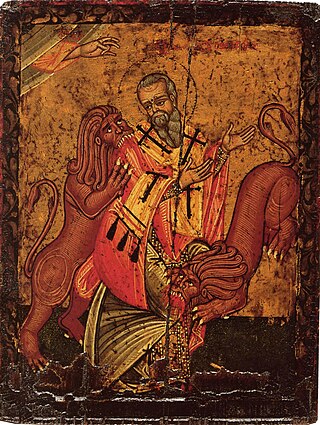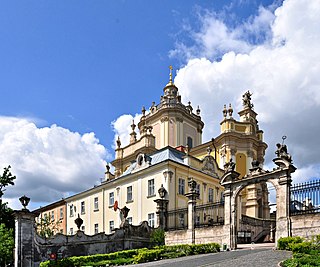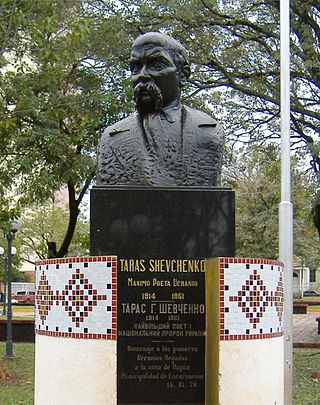This article includes a list of general references, but it lacks sufficient corresponding inline citations .(November 2012) |
Tim Kelleher | |
|---|---|
| Born | |
| Occupations |
|
| Spouse | |
Tim Kelleher is an American writer, actor and director.
This article includes a list of general references, but it lacks sufficient corresponding inline citations .(November 2012) |
Tim Kelleher | |
|---|---|
| Born | |
| Occupations |
|
| Spouse | |
Tim Kelleher is an American writer, actor and director.
Born in the Bronx, Kelleher grew up across the five boroughs of New York City, including Staten Island. [1] After college he entered the Maryland Province of the Society of Jesus (Jesuit). [2] After the novitiate, he chose to return to New York and train as a stage actor, studying under Robert Patterson.[ citation needed ]
With friends, Kelleher founded the Colony Theatre and served as its Artistic Director, staging the work of new playwrights as well as classics.[ citation needed ] His acting career has included guest appearances on numerous TV shows, and a turn as the resident villain on NBC's Sci-Fi series, Dark Skies . Kelleher‘s more than two dozen film credits include Malcolm X , Operation Dumbo Drop , Independence Day , The Negotiator , Thirteen Days , Flash of Genius , Seven Pounds and Inception.
Kelleher directed the short-form film The Skell, and in 2008, he wrote and directed Wake-Up Call, a pilot that did not go to series.[ citation needed ]
Kelleher is married to Canadian novelist Billie Livingston. [3] Religion has remained an interest of his and in 1995 he was received into the Ukrainian Greek Catholic Church. [1] [4] In keeping with his faith, in 2011 he wrote and produced, The Creed: What Christians Profess, and Why it Ought to Matter, a documentary film for First Things magazine featuring scholars and thinkers. [2] He also serves as New Media Editor for First Things, where he writes on topics related to religion, politics and culture. [2] In 2019 he was ordained a deacon in the Ukrainian Orthodox Church. [5]
| Film | |||
|---|---|---|---|
| Year | Title | Role | Notes |
| 1988 | The Understudy: Graveyard Shift II | Duke / Larry | |
| 1989 | Blue Vengeance | Detective | |
| 1989 | Black Rain | Bobby | |
| 1991 | Late for Dinner | Man at Catering Truck | |
| 1992 | Malcolm X | Cop at Harlem Station #3 | |
| 1993 | Teenage Mutant Ninja Turtles III | Raphael | Voice |
| 1994 | Terminal Velocity | Jump Junkie #1 | |
| 1995 | Operation Dumbo Drop | C-123 Pilot | |
| 1995 | Clockers | Narc #2 | |
| 1995 | Never Talk to Strangers | Wabash | |
| 1996 | The Birdcage | Waiter in Club | |
| 1996 | Executive Decision | Bulldog | |
| 1996 | Independence Day | Technician | |
| 1998 | Desperate Measures | Helicopter Shooter | |
| 1998 | The Negotiator | Argento | |
| 1999 | Made Men | Deputy Conley | |
| 2000 | Thirteen Days | Ted Sorensen | |
| 2003 | Matchstick Men | Bishop | |
| 2008 | Flash of Genius' | Charlie Defao | |
| 2008 | Seven Pounds | Stewart Goodman | |
| 2010 | Inception | Thin Man | |

The word catholic comes from the Greek phrase καθόλου 'on the whole, according to the whole, in general', and is a combination of the Greek words κατά 'about' and ὅλος 'whole'. The first known use of "Catholic" was by the church father Saint Ignatius of Antioch in his Letter to the Smyrnaeans. In the context of Christian ecclesiology, it has a rich history and several usages.

The Eastern Orthodox Church, officially the Orthodox Catholic Church, and also called the Greek Orthodox Church or simply the Orthodox Church, is the second-largest Christian church, with approximately 230 million baptised members. It operates as a communion of autocephalous churches, each governed by its bishops via local synods. The church has no central doctrinal or governmental authority analogous to the head of the Catholic Church. Nevertheless, the Ecumenical Patriarch of Constantinople is recognised by them as primus inter pares, a title formerly given to the patriarch of Rome. As one of the oldest surviving religious institutions in the world, the Eastern Orthodox Church has played an especially prominent role in the history and culture of Eastern and Southeastern Europe.
The Nicene Creed also called the Creed of Constantinople is the defining statement of belief of Nicene or mainstream Christianity and in those Christian denominations that adhere to it. The original Nicene Creed was first adopted at the First Council of Nicaea in 325. In 381, it was amended at the First Council of Constantinople. The amended form is also referred to as the Nicene Creed, or the Niceno-Constantinopolitan Creed for disambiguation.

Ordination is the process by which individuals are consecrated, that is, set apart and elevated from the laity class to the clergy, who are thus then authorized to perform various religious rites and ceremonies. The process and ceremonies of ordination vary by religion and denomination. One who is in preparation for, or who is undergoing the process of ordination is sometimes called an ordinand. The liturgy used at an ordination is commonly found in a book known as an Ordinal which provides the ordo for celebrations.
A Christian denomination is a distinct religious body within Christianity that comprises all church congregations of the same kind, identifiable by traits such as a name, particular history, organization, leadership, theological doctrine, worship style and, sometimes, a founder. It is a secular and neutral term, generally used to denote any established Christian church. Unlike a cult or sect, a denomination is usually seen as part of the Christian religious mainstream. Most Christian denominations refer to themselves as churches, whereas some newer ones tend to interchangeably use the terms churches, assemblies, fellowships, etc. Divisions between one group and another are defined by authority and doctrine; issues such as the nature of Jesus, the authority of apostolic succession, biblical hermeneutics, theology, ecclesiology, eschatology, and papal primacy may separate one denomination from another. Groups of denominations—often sharing broadly similar beliefs, practices, and historical ties—are sometimes known as "branches of Christianity". These branches differ in many ways, especially through differences in practices and belief.
Primus inter pares is a Latin phrase meaning first among equals. It is typically used as an honorary title for someone who is formally equal to other members of their group but is accorded unofficial respect, traditionally owing to their seniority in office.

The Ukrainian Greek Catholic Church (UGCC) is a major archiepiscopal sui iuris ("autonomous") Eastern Catholic church that is based in Ukraine. As a particular church of the Catholic Church, it is in full communion with the Holy See. It is the second-largest particular church in the Catholic Church after the Latin Church. The major archbishop presides over the entire Church but is not distinguished with the patriarchal title. The incumbent Major Archbishop is Sviatoslav Shevchuk.
The East–West Schism, also known as the Great Schism or Schism of 1054, is the break of communion between the Catholic and Eastern Orthodox churches since 1054. A series of ecclesiastical differences and theological disputes between the Greek East and Latin West preceded the formal split that occurred in 1054. Prominent among these were the procession of the Holy Spirit (Filioque), whether leavened or unleavened bread should be used in the Eucharist, iconoclasm, the coronation of Charlemagne as Emperor of the Romans in 800, the Pope's claim to universal jurisdiction, and the place of the See of Constantinople in relation to the pentarchy.
The Ukrainian Orthodox Church of Canada is an Eastern Orthodox church in Canada, primarily consisting of Orthodox Ukrainian Canadians. Its former name was the Ukrainian Greek Orthodox Church of Canada (UGOCC). The Church, currently a metropolis of the Ecumenical Patriarchate of Constantinople, is part of the wider Eastern Orthodox communion, however was created independently in 1918.

In Christianity, a minister is a person authorised by a church or other religious organization to perform functions such as teaching of beliefs; leading services such as weddings, baptisms or funerals; or otherwise providing spiritual guidance to the community. The term is taken from Latin minister. In some church traditions the term is usually used for people who have been ordained, but in other traditions it can also be used for non-ordained.

Religion in the Union of Soviet Socialist Republics (USSR) was dominated by the fact that it became the first state to have as one objective of its official ideology the elimination of existing religion, and the prevention of future implanting of religious belief, with the goal of establishing state atheism (gosateizm). However, the main religions of pre-revolutionary Russia persisted throughout the entire Soviet period and religion was never officially outlawed. Christians belonged to various denominations: Orthodox, Catholic, Baptist and various other Protestant denominations. The majority of the Muslims in the Soviet Union were Sunni, with the notable exception of Azerbaijan, which was majority Shia. Judaism also had many followers. Other religions, practiced by a small number of believers, included Buddhism and Shamanism.
Richard John Neuhaus was a prominent writer and Christian cleric.
Catholicity is a concept of pertaining to beliefs and practices that are widely accepted by numerous Christian denominations, most notably by those Christian denominations that describe themselves as catholic in accordance with the Four Marks of the Church, as expressed in the Nicene Creed formulated at the First Council of Constantinople in 381: "[I believe] in one, holy, catholic, and apostolic Church." The English adjective catholic is derived from the Ancient Greek adjective καθολικός, meaning "general", "universal". Thus, "catholic" means that in the Church the wholeness of the Christian faith, full and complete, all-embracing, and with nothing lacking, is proclaimed to all people without excluding any part of the faith or any class or group of people. An early definition for what is "catholic" was summarized in what is known as the Vincentian Canon in the 5th century Commonitory: "what has been believed everywhere, always, and by all."
The Chicago-Lambeth Quadrilateral, frequently referred to as the Lambeth Quadrilateral or the Lambeth-Chicago Quadrilateral, is a four-point articulation of Anglican identity, often cited as encapsulating the fundamentals of the Anglican Communion's doctrine and as a reference point for ecumenical discussion with other Christian denominations. The four points are:
Billie Livingston is a Canadian novelist, short story writer, essayist, and poet. Born in Hamilton, Ontario, Livingston grew up in Toronto and Vancouver, British Columbia. She lives in Vancouver.

The Catholic Church and the Eastern Orthodox Church have been in a state of official schism from one another since the East–West Schism of 1054. This schism was caused by historical and language differences, and the ensuing theological differences between the Western and Eastern churches.

Ukrainians in Paraguay are an ethnic minority in Paraguay. In the mid-1990s, 5,000 to 8,000 Ukrainians lived in Paraguay, clustered in small communities near the southeastern city of Encarnacion, which borders the Argentine province of Misiones. The majority of Ukrainians in Paraguay work as farmers, cultivating rice, corn, wheat and yerba mate.
The term Roman Catholic is used to differentiate the Catholic Church and its members in full communion with the pope in Rome from other Christians who identify as "Catholic". It is also sometimes used to differentiate adherents to the Latin Church and its use of the Roman Rite from Catholics of the Eastern Catholic Churches. It is not the official name preferred by the Holy See or bishops in full communion with the pope as a designation for their faith or institution.

Nicholas Charnetsky, Mykolai Charnetskyi or Mykolay Charnetsky was a member of the Redemptorists, a religious congregation in the Byzantine Rite of the Catholic Church; he is considered a martyr by the church.